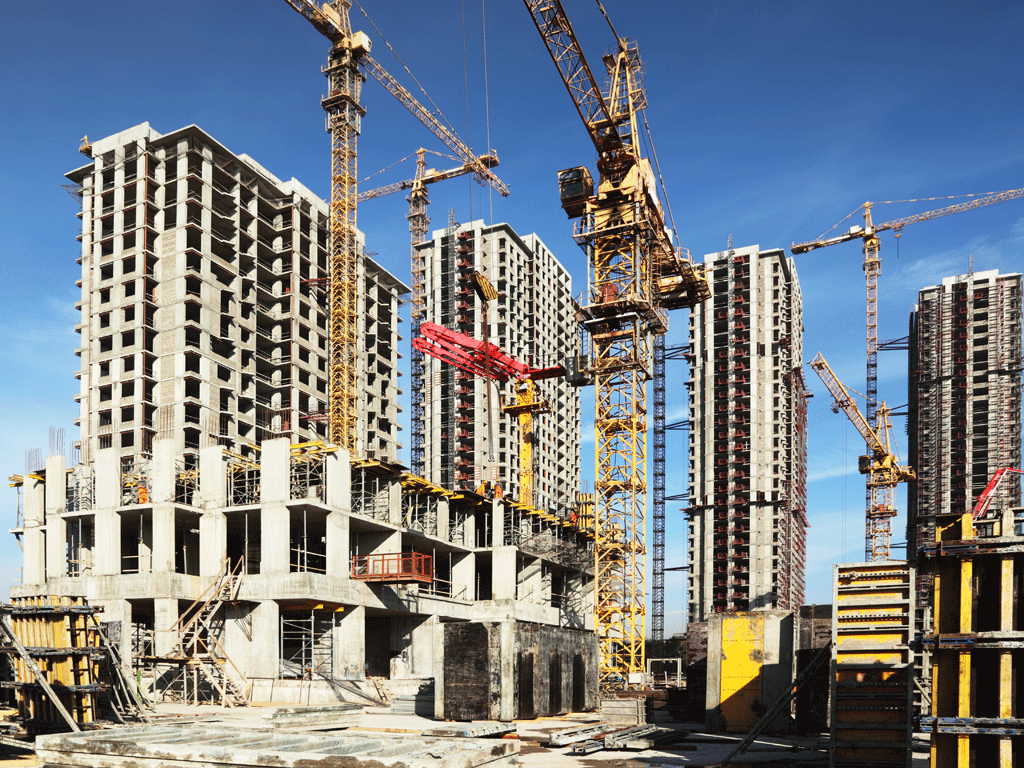NALED Proposes Mass Legalization of Real Estate – 2 Million Illegal Facilities and Another 2.7 Million Unregistered Ones in Serbia
Source: eKapija
 Wednesday, 01.11.2023.
Wednesday, 01.11.2023.
 14:40
14:40
 Wednesday, 01.11.2023.
Wednesday, 01.11.2023.
 14:40
14:40
Illustration (Photo: Pavel L Photo and Video/shutterstock.com)

– The solving of serious and decades-long property-legal problems with real estate would unlock a capital worth billions of euros, enable the registration of a huge number of pieces of real estate in the land register and put an end to complex cases from the past, which is why the NALED has prepared the first proposition of an all-encompassing reform in this field – the announcement says.
The NALED’s new study, which was prepared with the support of the Swedish International Development Cooperation Agency (Sida), through the project “Public Procurement Procedures and Good Management for Greater Competitiveness”, was presented at the session of the members of the Property and Investment Alliance and submitted to the competent ministries for insight. It also proposes solutions to the issues of legalizing illegally built facilities, upgrading the procedures of land re-parceling and expropriation, digitizing urban planning through the implementation of the eSpace (eProstor) system, real estate lien, public property management, real estate taxation, solving the challenges of public land and other procedures.
Dusan Vasiljevic, Director for Competitiveness and Investments at the NALED, points out that the study covers the solving of serious and decades-long problems, which can’t be simple, but could be quick, with a strong will and determination of the institutions in charge.
– There are two million illegal facilities and another 2.7 million which are not listed in the land register for various reasons. At this tempo, the process of legalization would take 40 years, and the losses that the state, the citizens and the economy suffer because of it are already enormous. That is why we propose to have a mass legalization carried out, wherever possible, with the adoption of clear measures which would stop further illegal construction. For the other real estate group, it is necessary to include legal professions and form special commissions which would work on the convalidation and verification of old and incomplete documentation, so that the registration of all real estate would be done based on that – Vasiljevic said.
Among the proposed measures in the study is the forming of a state real estate fund (land bank). Modeled after the international practice, the aim is to carry out the replacement of land whenever possible, in the processes of re-parceling and expropriation, and introduce a single central body which would run the affairs of substitution, purchase and sale.
Along with that, it is necessary to fully digitize the preparation of spatial and urban plans, through the implementation of the eSpace (eProstor) system, so that the whole process would be more efficient and so that the citizens and the economy could react on time and influence the decisions on construction in their neighborhoods. This way, the institutions would electronically exchange information, give comments, issue requirements and approvals and, at the same time, work on the preparation of plans, which would considerably accelerate the adoption of documents, because they would work in parallel in the same system, instead of waiting for each other to do their part of the job for months, as is the case now.
Along with the digitization and optimization of said procedures, the study says that it is necessary to work on upgrading the system of taxation through a more efficient collection of the real estate rental income tax and the introduction of a tax on the total “foreign” immovable property, which would pertain to those who have very valuable real estate abroad.
Vasiljevic says that great progress has been made in this field compared to seven years ago, when electronic building permits were introduced for the first time, with which as many as 73% of the investors are fully satisfied now.
Tags:
Republic Geodetic Authority
NALED
Swedish International Development Cooperation Agency
Sida
Dusan Vasiljevic
land bank
eProstor
eSpace
illegal facilities
legalization
legalization of facilities
Public Procurement Procedures and Good Management for Greater Competitiveness
Comments
Your comment
Naš izbor
Most Important News
Full information is available only to commercial users-subscribers and it is necessary to log in.
Follow the news, tenders, grants, legal regulations and reports on our portal.
Registracija na eKapiji vam omogućava pristup potpunim informacijama i dnevnom biltenu
Naš dnevni ekonomski bilten će stizati na vašu mejl adresu krajem svakog radnog dana. Bilteni su personalizovani prema interesovanjima svakog korisnika zasebno,
uz konsultacije sa našim ekspertima.


 Izdanje Srbija
Izdanje Srbija Serbische Ausgabe
Serbische Ausgabe Izdanje BiH
Izdanje BiH Izdanje Crna Gora
Izdanje Crna Gora


 News
News












